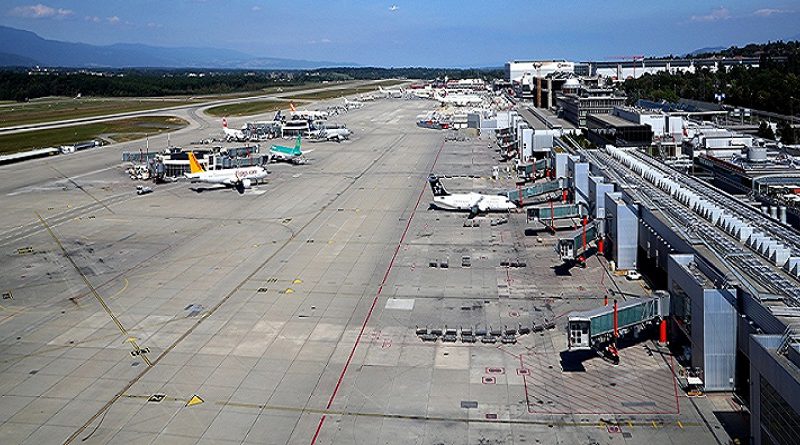Galapagos, Geneva, 35 other airports go carbon neutral
The Airport Carbon Accreditation (ACA) programme has recently certified the Galapagos and Geneva airports carbon neutral. Their achievement brings to 37 the number of airports certified as carbon neutral for emissions under their control. In total, 211 airports are signed up and certified at one of the four levels certified by ACA.
Although they are worlds apart, one in a place famous for its ecological diversity, the other for its watches and chocolate, but now Galapagos and Geneva airports have something special in common – they both recently became carbon neutral under the Airport Carbon Accreditation (ACA) programme.
“This really sends a message to the wider world that carbon management is a valid consideration for every business no matter where they are located,” said Angela Gittens, Director General, Airports Council International (ACI World). The ACA programme was launched by ACI Europe in 2009.
In addition to reducing their carbon footprint through energy efficiency measures and use of renewable energy, these airports invested in carbon offsets funding biomass and efficient cook-stove projects, issued under the United Nation’s Clean Development Mechanism and the Gold Standard.
“An impressive 3.2 billion air passengers now travel through airports certified at one of the four levels of Airport Carbon Accreditation – a testament to how much the programme has helped mobilize airport operators towards addressing their carbon footprints,” said Ms. Gittens in recognizing the achievements of the two newest carbon-neutral airports.
The Intergovernmental Panel on Climate Change has estimated that aviation accounts for 2 percent of global greenhouse gas emissions. Of that, airport operations account for up to 5 percent.
“It is a great honor for us to receive this certification at Level 3+ Neutrality as the first airport in Latin America and the Caribbean,” Jorge Rosillo, General Manager, Galápagos Ecological Airport, Ecuador.
The ACA programme has four levels of accreditation covering all stages of airport emissions management: mapping, reduction, optimization and neutrality (called the 3+ Level under the programme).
“We take pride in being able to say that we have delivered on the commitment we made last year, to reduce the net emissions under our control to zero,” said André Schneider, General Manager, Geneva Airport. “Now that we have reached to Level 3+ of Airport Carbon Accreditation, we intend to continue our work on the various environmental aspects of our operations with the same zeal.”
Airports can address their CO2 emissions in a variety of ways, such as by adopting energy efficiency measures, switching to green energy sources, investing in hybrid, electric or gas-powered service vehicles, encouraging employees, passengers and visitors to use public transport, working with airlines and air traffic management to reduce runway taxiing times and implement green landing processes.
“The work airports are doing should inspire others to measure their emissions, reduce what they can and offset the rest,” said Niclas Svenningsen, who oversees the UN Climate Change’s Climate Neutral Now initiative, of which ACI is a partner.
Airport Carbon Accreditation is an independent, voluntary programme administered by consultancy WSP and overseen by an advisory board including representatives from UN Climate Change, International Civil Aviation Organization, UN Environment, European Commission, European Civil Aviation Conference, EUROCONTROL and Manchester Metropolitan University.
There are now 10 airports in Africa certified at one of the four levels of Airport Carbon Accreditation, 41 in Asia-Pacific, 118 in Europe, 8 in Latin-America and the Caribbean and 34 in North America. Click on the image to go to an interactive map.




